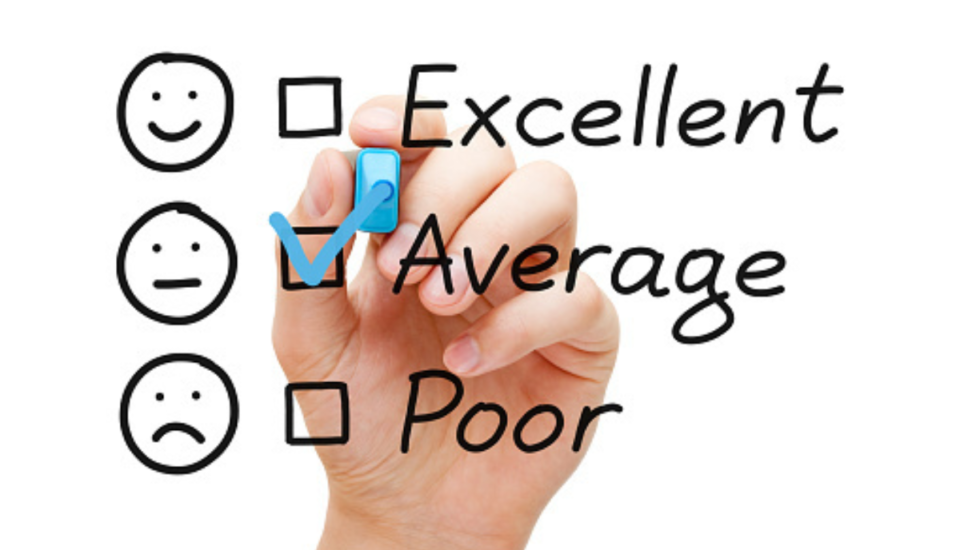
Ethics in business is a very difficult area to navigate. I have heard some that think ethics are simply black and white. I totally disagree. Of course there are those that are unethical as the Enron guys are used as an example in the blog discussion, but they acted criminally with intent to defraud. Those types of cases are the easy ones. I am talking about the situations that arise for example, when a company has a minor working in their factory at an overseas plant. It seems wrong on the surface, but what if that minor is the sole provider for themselves and siblings and without the job they might starve? What if you are asked to contribute to a charity before you close a significant piece of business? I do agree with the blog on ethics must start at the top with management. “Corporate culture must support all employees to think critically about every decision and action, every day: Is this ethical? What would this behavior say about the kind of person I am? What is the impact of this decision or behavior on my colleagues, my community?” (Sockell, 2013).
Sockell, D. (2013, January 10). Learning to do the right thing – right here, right now. Retrieved from http://business-ethics.com/2013/01/10/10545-learning-to-do-the-right-thing-right-here-right-now/
Josh,
I always enjoy listening to your point of view- you always shed light on issues from another angle and it’s truly enlightening. I completely agree with what you stated. I am not sure if any of have come across this, but the American Marketing Association has put out a extensive Statement of Ethics, which includes, but not limited to:
“1.Do no harm. This means consciously avoiding harmful actions or omissions by embodying high ethical standards and adhering to all applicable laws and regulations in the choices we make.
2.Foster trust in the marketing system. This means striving for good faith and fair dealing so as to contribute toward the efficacy of the exchange process as well as avoiding deception in product design, pricing, communication, and delivery of distribution.
3.Embrace ethical values. This means building relationships and enhancing consumer confidence in the integrity of marketing by affirming these core values: honesty, responsibility, fairness, respect, transparency and citizenship. ”
If we can closely abide by these code of ethics, we should be on the right track.
I highly recommend this source for all future business professionals.
Statement of ethics:ethical norms and values for marketers. (n.d.). Retrieved from http://www.marketingpower.com/AboutAMA/Pages/Statement of Ethics.aspx
Sincerely,
Rania
Dr. Green,
Looking at how ethics in business effect marketing. I think that ethics play a major role in brand image to the customer. If unethical practices are being used by a business it seems that those end up getting back to the customer by ways of the media. That can be seen by several recent stories about worker conditions in china and India by major US Companies (i.e. apple, Nike and Wal-Mart). Unethical practices are a short trm solution. With today’s media the practices will be exposed and get back to the consumer. It would be more profitable to the company to practice ethical branding. Essentially using ethical practices to protect the brand to avoid bad ethical publicity that dissuades consumers.
Fan, Y. (2005). Ethical branding and corporate reputation. Corporate Communications: An International Journal, 10(4), 341-350. doi: http://dx.doi.org/10.1108/13563280510630133
Josh,
Your point on the ethical decision behind the use of children is excellent. I also agree that ethics is more of a gray matter. I feel that it can be more about common sense. Which of course is very subjective. However since marketing does have to do will selling the brand. Wouldn’t bad publicity hurt the brand image of the company. Does this in turn lower the value of the brand to the customer resulting in fewer sales? I feel that you need to air on the side of caution when it comes to ethics. The term political correctness comes to mind. The media will only report that children work in factories overseas they won’t necessarily report that the child wants to work so it can provide for its brothers and sisters. Should companies not try and use ethical practices that protect their brand image with the customer?
Fan, Y. (2005). Ethical branding and corporate reputation. Corporate Communications: An International Journal, 10(4), 341-350. doi: http://dx.doi.org/10.1108/13563280510630133






7 Comments
Dr. Green,
Ethics and marketing go hand-in-hand. You can’t have one without the other. Unfortunately, in today’s corporate culture, many marketers choose to ignore the code of ethics in order to make their organization as much profit as possible. Perhaps, that’s part of the marketing game. Fortunately, most organizations can only play this game for so long before their foundation begins to crack (e.g. Enron). Much like how the corporate culture of that foundation is built on trust, so is the consumer culture. That’s why it’s important to never misuse a consumer’s trust.
A long time ago I dealt with an online payday lender, who masked their high-interest rates (around 800 percent) with colorful advertisements and “promotions.” I should have known better but I was naïve, so, I took the plunge and took out a small loan that took me almost a year to pay off. According to Hershey Friedman, professor or business at Brooklyn College, “deceiving customers may help a firm’s profits in the short-run, but is not the way to build a successful business.” That payday company I mentioned is no longer around. It got busted. If they followed the law, that wouldn’t have been the case.
Friedman, Hershey. (2011). “Marketing & Society: Marketing Ethics.” Journal of Markets & Morality. Accessed from: http://academic.brooklyn.cuny.edu/economic/friedman/mmethics.htm. (Blog response posted on 10-08-2013).
Robert,
That is a good thing to mention. Ethics are a part of marketing and business. Marketers and companies cannot over look ethics no matter how hard they try. As Robert said, some marketers choose to ignore ethics in order to make a profit for their companies. Marketers should not sacrifice what is right just to make money.
Many people seem to have the sense that ethics are spiraling downward in business, yet most business professionals and entrepreneurs don’t believe they can make a difference. They don’t realize that if they don’t take an active role in the solution, they really become part of the problem. Most business people want to do the right thing, but many just don’t have the skills to develop an unemotional ethical position, or confidence to act on their ethical beliefs, or simply are not sure how to go about making a difference in their daily actions, without jeopardizing their own career (Zwilling, 2013).
Source: Zwilling, M. (2013, November 17). How to Make an Ethical Difference in Your Business. Retrieved from http://www.forbes.com/sites/martinzwilling/2013/11/17/how-to-make-an-ethical-difference-in-your-business/.